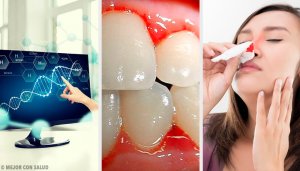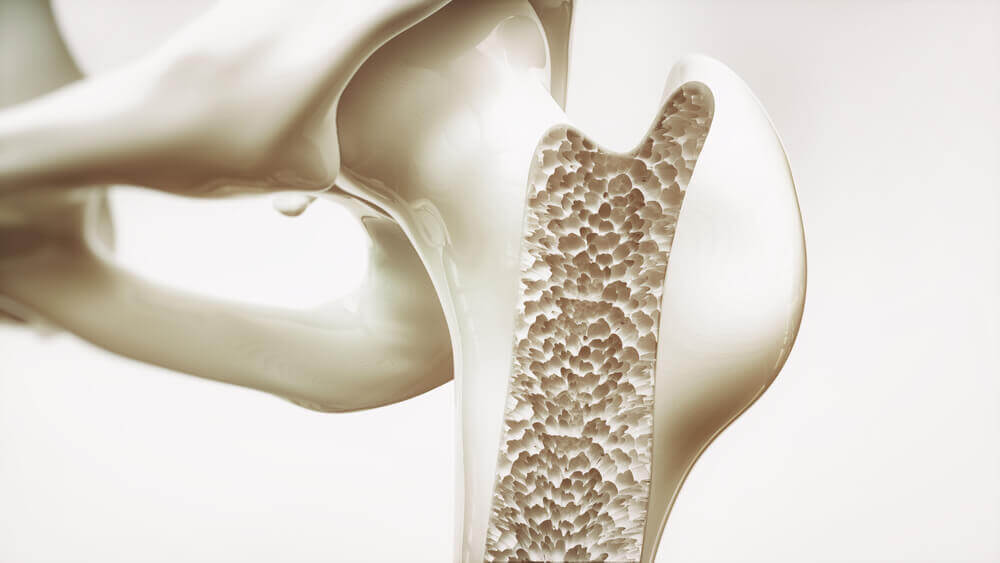The Risks of a Vitamin Deficiency


Written and verified by the doctor Gilberto Adaulfo Sánchez Abreu
A balanced diet provides your body with the amount of energy it needs to function, in addition to some basic nutrients that prevent disease. However, there are plenty of risks associated with vitamin deficiency, which is why they should be part of your daily diet.
A healthy diet should include both essential and non-essential nutrients. So, you can’t skip your vitamins.
The main risk associated with a vitamin deficiency is the potential for developing related diseases and disorders. These occur when you lack something that your body isn’t able to make on its own.
Some of these diseases can be serious or chronic. For this reason, it’s essential that you avoid being deficient in your vitamins.
A lack of B vitamins – the risks

The B complex vitamins are a group of eight vitamins. Therefore, all of them influence your metabolism and help with your nervous system. As you can imagine, this deficiency can become very dangerous in certain cases. The following are the risks of missing out on your B vitamins:
- Vitamin B1 or thiamine: a deficiency in this vitamin will lead to a neurological disorder known as “Beri-Beri.” This can in turn lead to heart disease.
- B2 Vitamin, or riboflavin: lack of this vitamin can cause problems with your mucus membranes, such as dry eyes, inflammation of the tongue, constant tear production, etc.
- Vitamin B3, or niacin: if you don’t get enough Niacin, it can lead to a serious illness known as “pellagra”
- B5 Vitamin, or pantothenic acid: this deficiency will cause neurological, dermatological, and gastrointestinal problems
- Vitamin B6, or pyridoxine: low levels of this vitamin can lead to digestive issues or problems with your nervous system
- B9 Vitamin, or folic acid: megaloblastic anemia can come from low levels of folic acid. It also affects growth and mental development.
- Vitamin B8, or Biotin: when you don’t get enough of this vitamin, you run the risk of developing dermatitis and gastrointestinal, nervous system, or muscular problems
- B12 Vitamin, or Cobalamin: this deficiency leads to anemia and neuromuscular problems
Get to know the Eight Vitamins You Must Have in Your Diet
Vitamin C deficiency
Next, a lack of vitamin C can cause a disease known as “scurvy.” This causes a weakening of the gums, which causes them to bleed and leads to tooth loss. In addition, it can also cause anemia and changes in the skin and hair. People with low levels of vitamin C tend to bleed freely from wounds and it takes a long time for them to heal.
Vitamin D deficiency

Next, a lack of vitamin D often leads to a disease known as osteomalacia. This is a bone disorder similar to rickets, and it causes very fragile bones.
In addition, scientists suspect that a vitamin D deficiency can also influence several types of cancer. Plus, there is evidence of a relationship between vitamin D and ovary, prostate, breast, and colon cancers.
Those with low levels of vitamin D also tend to suffer from chronic fatigue and autoimmune disorders. The most common is a type I diabetes, multiple sclerosis, affective disorders, arthritis, and more.
Try out these Exercises to Treat and Prevent Osteoporosis
Vitamin E deficiency
The risks associated with not getting enough vitamin E are very high. This deficiency is not common. However, it can have serious consequences. So, there are three situations in which a vitamin E deficiency tends to occur:
- In patients with metabolic disorders. This may include cystic fibrosis, celiac disease, and others
- In babies that are born prematurely or with very low birth weight
- In people with a genetic abnormality
A lack of vitamin E causes neurological problems. It can also lead to fatigue and weakness, as well as anemia. Furthermore, scientists believe that there’s a link between a vitamin E deficiency and infertility.
Vitamins K and A deficiencies

Finally, these two vitamins are also very important for your body. Vitamin K is known as the “anti-hemorrhage vitamin.” Furthermore, as the name implies, it helps your body form blood clots and stop bleeding, which is why a deficit can lead to severe problems.
Not getting enough of this vitamin can also affect your bone development, causing them to be deformed. In addition, it can affect the concentration of insoluble salts in the walls of your arteries.
It’s rare to observe a vitamin A deficiency. When it does occur, however, it causes problems with vision and even leads to blindness. It also influences skin problems and the growth and development of children.
All cited sources were thoroughly reviewed by our team to ensure their quality, reliability, currency, and validity. The bibliography of this article was considered reliable and of academic or scientific accuracy.
- Osteomalacia. https://www.mayoclinic.org/es-es/diseases-conditions/osteomalacia/symptoms-causes/syc-20355514
- Carencia de vitamina C y escorbuto. http://www.fao.org/docrep/006/w0073s/w0073s0n.htm
- Guilland, J.-C. (2013). Vitaminas en la práctica médica cotidiana. EMC – Tratado de Medicina. https://doi.org/10.1016/s1636-5410(13)64522-5
- Behrens P, María Isabel, Díaz T, Violeta, Vásquez V, Carolina, & Donoso S, Archibaldo. (2003). Demencia por déficit de vitamina B12: Caso clínico. Revista médica de Chile, 131(8), 909-914. https://dx.doi.org/10.4067/S0034-98872003000800012
This text is provided for informational purposes only and does not replace consultation with a professional. If in doubt, consult your specialist.








